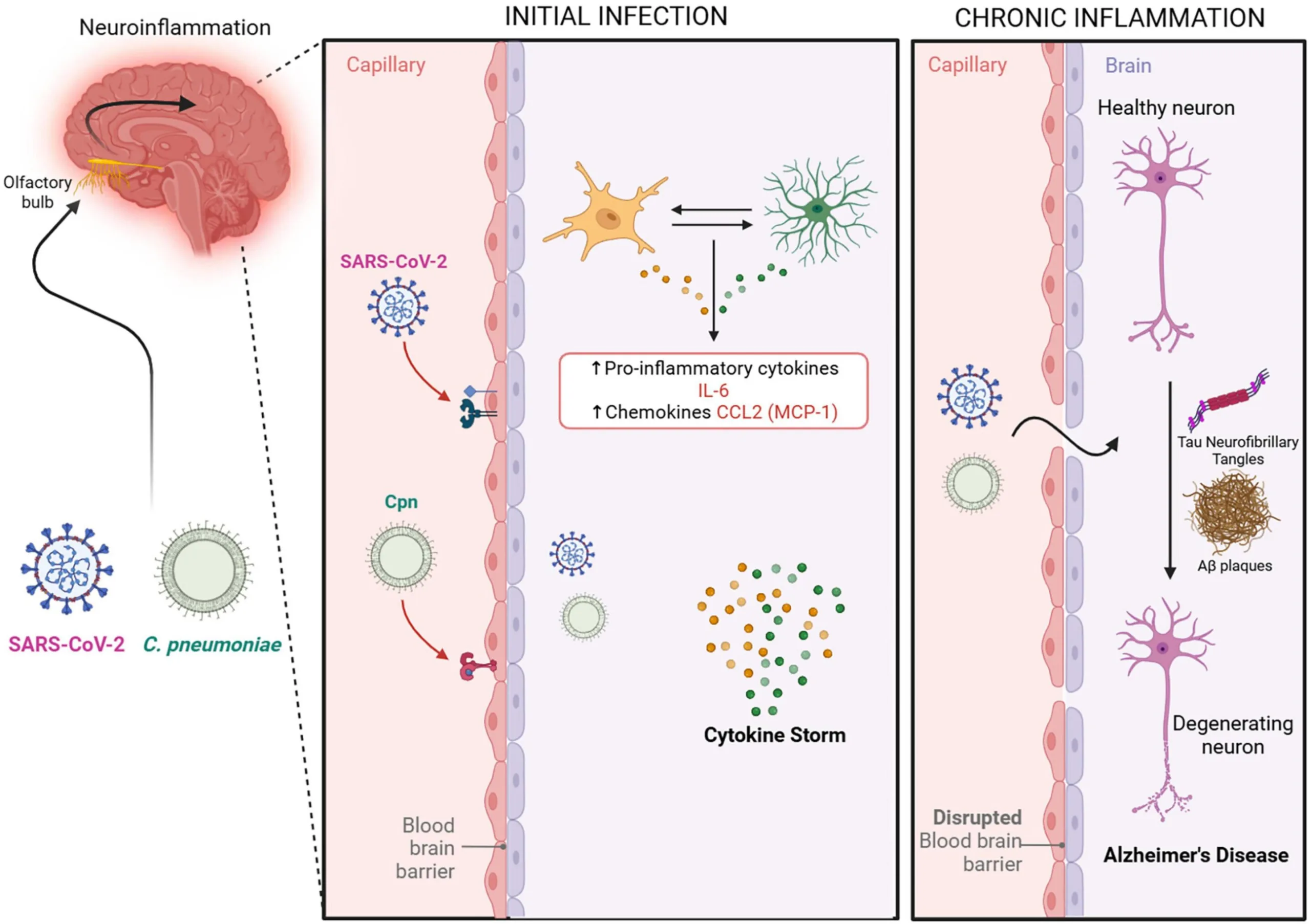Could Infections Like Pneumonia and COVID-19 Be Linked to Alzheimer’s?
Recent research is exploring a potential connection between common infections and the development of Alzheimer’s disease. A review conducted by researchers at Philadelphia College of Osteopathic Medicine (PCOM) suggests that Chlamydia pneumoniae (Cpn) and SARS-CoV-2, the virus responsible for COVID-19, might contribute to the progression of this debilitating neurological condition.
The Investigation: Uncovering Potential Links
The PCOM review delves into existing studies examining the presence and impact of these infections on brain health. Alzheimer’s disease is characterized by the accumulation of amyloid plaques and neurofibrillary tangles in the brain, leading to cognitive decline. Researchers are now investigating whether certain infections could trigger or exacerbate these processes.
Chlamydia pneumoniae: A Long-Term Suspect
Chlamydia pneumoniae is a common bacterium that causes respiratory infections, such as pneumonia and bronchitis. Studies have previously detected the presence of Cpn in the brains of Alzheimer’s patients, leading to speculation about its potential role in the disease’s development.
- Cpn might directly infect brain cells, causing inflammation and damage.
- The infection could trigger an immune response that inadvertently harms brain tissue.
SARS-CoV-2: A New Area of Concern
The COVID-19 pandemic has raised concerns about the long-term neurological effects of SARS-CoV-2. While the virus primarily affects the respiratory system, it can also impact the brain, leading to symptoms like brain fog and cognitive impairment.
- SARS-CoV-2 could potentially accelerate neuroinflammation, contributing to Alzheimer’s pathology.
- Vascular problems caused by COVID-19 might indirectly affect brain health and increase Alzheimer’s risk.
What Does This Mean for Prevention and Treatment?
While this research is still in its early stages, it highlights the importance of understanding the potential role of infections in Alzheimer’s disease. Further studies are needed to confirm these links and explore potential preventative and therapeutic strategies.
Possible Future Directions:
- Developing targeted therapies to combat infections in the brain.
- Investigating vaccines that could protect against infection-related neurodegeneration.
- Promoting overall health and hygiene to minimize the risk of infection.
Final Overview: A Call for Continued Research
The emerging evidence suggesting a connection between infections like Chlamydia pneumoniae and SARS-CoV-2 and Alzheimer’s disease is intriguing. While more research is necessary, these findings underscore the complex interplay between infection, inflammation, and neurodegeneration. By exploring these potential links, scientists hope to develop new strategies for preventing and treating this devastating disease.



+ There are no comments
Add yours